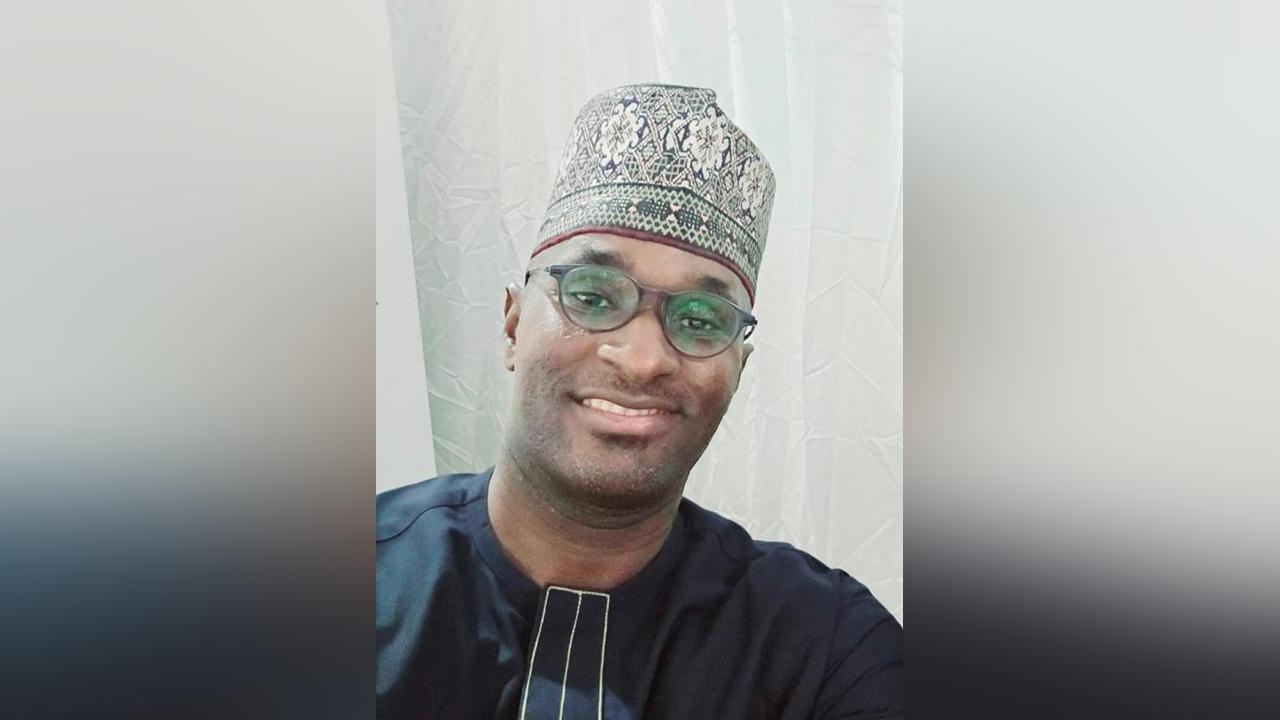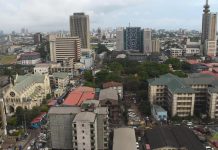By Bai Madi Ceesay
Africa-Press – Gambia. Introduction
State-Owned Enterprises (SOEs) remain foundational to The Gambia’s socio-economic development. They deliver essential public services, generate employment, and contribute to infrastructure and industrial development. Despite their strategic importance, SOEs have long struggled with inefficiency, financial instability, and governance shortcomings. By the close of 2023, their liabilities had ballooned to an estimated 20.3% of the nation’s Gross Domestic Product (GDP), a figure that underscores the fiscal strain they impose on the national budget.
Over the years, the government has repeatedly intervened to rescue these entities, clearing arrears and absorbing debts which divert resources from critical development priorities. These bailouts are not isolated events but symptoms of deeper structural weaknesses. Audits and assessments have consistently revealed insolvency, inflated asset valuations, fragile accounting systems, and a lack of clarity between commercial and social mandates. Compounding these issues is the limited effectiveness of SOE boards, where administrative dominance often eclipses professional independence.
In response to these challenges, the 2023 SOE Act was, in a transformative moment, enacted to effect positive changes towards the prudent management and governance of SOEs. At its heart lies a bold reconfiguration of board governance strategy designed to restore accountability of SOEs, strengthen their financial discipline, and reposition them as engines of sustainable growth.
Persistent challenges in SOE governance
Although the governance deficits afflicting Gambian SOEs are deeply entrenched, they are neither recent, episodic, nor peculiar to the country. Over the past three years, at least one SOE received a qualified audit opinion, while the majority continued to post losses. SOEs in the energy, agriculture, and telecommunications sectors have been particularly burdensome in the past, with the government frequently stepping in to absorb their liabilities.
In 2014, public finances were strained by SOE-related obligations amounting to 3% of GDP. In 2018, telecommunications related loans totalling 3.6% of GDP were absorbed by the government. A similar pattern in 2019, when the state assumed 75% of the energy company’s debt, adding 2.8% of GDP to the fiscal deficit. These interventions reflect not only operational inefficiencies but also the broader macroeconomic vulnerabilities that SOEs in various sectors of the economy pose to government.
Transfers and subsidies to SOEs have also increased, from 0.6% of GDP in 2019 to 1% in 2020, while their tax contributions remain negligible, averaging just 0.23% of GDP between 2016 and 2019. This imbalance is driven by tax exemptions, limited profitability, and in some cases, an inability to meet corporate tax obligations.
Meanwhile, governance structures have played a central role in perpetuating these imbalances. In some instances, boards have abdicated their oversight responsibilities, allowing line ministries to assume roles that should rightly rest with them. This erosion of board authority has diluted accountability and entrenched inefficiency.
Reforming SOE board composition
A well-constituted and credible board is the cornerstone of effective SOE governance. Strong boards uphold fiduciary principles, provide strategic direction, and ensure managerial accountability. Conversely, poorly structured boards often exacerbate operational decline.
While board quality is not the sole determinant of SOE performance, management capacity, political context, and market dynamics also matter. Furthermore, global evidence affirms that positive SOE performance outcomes are strongly correlated to competent boards.
The 2023 SOE Act introduces a paradigm shift in board composition: private members now outnumber government (ex-officio) representatives. Historically, SOE boards in The Gambia were dominated by ex-officio members, civil servants serving in their institutional capacity. For example, the former board of Gambia International Airlines (GIA) included only one private member.
Such configurations often led to administrative inertia, and fragmented loyalties, undermining commercial judgment and financial discipline. The new SOE Act, comprising four private members, two ex-officio members, and the managing director, seeks to reverse this trend. Private members, particularly those with business acumen, are expected to inject commercial rigor, innovation, and strategic foresight.
This approach aligns with international best practice. The OECD Guidelines on Corporate Governance of State-Owned Enterprises advocate for boards composed predominantly of independent professionals with relevant expertise, rather than civil servants, to safeguard against political interference and reinforce oversight.
Crucially, this reform agenda is not merely about governance architecture; but also, safeguarding the performance and fiscal health of SOEs. By rebalancing board composition toward commercially minded and independent membership, the act introduces a structural mechanism to mitigate financial risks, enhance discipline, and reduce the budgetary burden of underperforming SOEs.
Emerging trends in board recruitment: a shift toward competency
Historically, SOE board appointments in The Gambia were made directly by the president, often based on ministerial recommendations or through other channels potentially influenced by political allies. While constitutionally permissible, this practice often prioritised loyalty over competence, resulting in appointments that lacked the technical, sectoral, or governance expertise required for effective board service.
The 2023 SOE Act ushered in a new era of merit-based recruitment process. For the first time, all SOE board positions were publicly advertised by the SOE Commission, and a transparent selection process, comprising shortlisting and interviews, was introduced. Although the president retains the final authority to appoint and reject candidates, recommendations from the commission have thus far been approved.
The initial round of advertisements yielded limited responses, with many applicants falling short of the required qualifications. To address this, the Commission supplemented public outreach with targeted engagement, approaching qualified Gambians directly and building a talent database for future vacancies, as permitted by the SOE Act.
Subsequent recruitment rounds have seen a marked improvement in the number of qualified applicants. Many candidates now possess extensive experience in the private sector, public institutions, or international organizations. Importantly, they have demonstrated a strong commitment to national development and a desire to contribute to the transformation of SOE governance.
Broadening the talent pool: Inclusive and diverse board
A notable trend is the predominance of retirees among applicants. While their expertise is invaluable, there is a need to balance this with the inclusion of younger and mid-career professionals. A diverse demographic profile would enrich board deliberations, enhance technological fluency, and introduce fresh perspectives. A blend of seasoned insight and youthful dynamism will be essential to driving meaningful reform.
Another challenge is the low number of female applicants. The SOE Act mandates that each board include at least three women, yet the number of female applicants remains very limited. The reasons for this shortfall are unclear, but it represents a significant barrier to achieving gender equity in SOE governance.
True inclusivity must also deliberately embrace people living with disabilities. This dimension of diversity is critical. Appointing qualified individuals with disabilities to SOE boards is not merely a token gesture; it is a strategic imperative. It brings invaluable perspectives shaped by different life experiences, champions accessibility of SOE services to people with disabilities, and taps into a resilient, innovative, and underutilised talent pool. Ensuring their representation is essential for SOE boards to be truly reflective of the communities they serve and to foster comprehensive, empathetic governance.
Early results and impact
Despite the challenges the SOE sector poses, there is potential silver lining in the horizon. The convergence of merit-based appointments, increased private sector participation, and the enforcement of performance contracts is beginning to yield tangible results:
• Financial improvement: Cumulative net losses across SOEs have declined by over 50%, from D2.9 billion in 2023 to D1.4 billion in 2024, reflecting stronger fiscal oversight and improved governance.
• Governance gains: Boards are becoming more proactive in implementing audit recommendations, strengthening internal controls, and holding management accountable.
These initial achievements reflect the joint efforts of SOE leadership, oversight bodies, line ministries, and the continued support of development partners such as the World Bank and International Monetary Fund (IMF).
Conclusion
The enduring financial and governance challenges facing State-Owned Enterprises in The Gambia have long cast a shadow over public finances and economic resilience. Chronic losses, escalating subsidies, and repeated government bailouts are not merely fiscal anomalies, they are manifestations of deeper structural flaws rooted in outdated governance frameworks.
The enactment of the 2023 SOE Act marks a pivotal turning point. By reimagining board composition to favor private sector expertise and embedding competency-based recruitment, the Act lays the groundwork for a more accountable, efficient, and fiscally disciplined SOE landscape. Though still in its infancy, The Gambia’s reform journey offers compelling evidence that strategic board renewal can catalyse meaningful performance gains.
To sustain this momentum, four imperatives must guide the path forward:
1. Broaden the talent pipeline with deliberate efforts to attract qualified women, people with disabilities, and young emerging professionals.
2. Fortify board independence: ensuring decisions are driven by commercial logic rather than institutional allegiance.
3. Enforce performance contracts: anchoring accountability in measurable outcomes.
4. Invest in board capacity through continuous training and governance development.
By ushering independent, commercially astute, and technically proficient individuals into SOE boardrooms, the reform holds transformative potential, not only to restore fiscal balance but to elevate the strategic value of SOEs. Its success, however, will hinge on rigorous implementation: transparent appointments, sustained capacity-building, and a thoughtful blend of seasoned wisdom and youthful innovation.
Ultimately, strong boards are not the destination, they are the launchpad. They represent the institutional scaffolding upon which The Gambia can rebuild its SOEs into engines of national development, financial sustainability, and public trust.
Mr Ceesay is a seasoned Public Finance Management (PFM) specialist who previously served as the director of PFM at the Ministry of Finance and Economy Affairs, where he coordinated government’s PFM reform agenda. He also served as the budget director, coordinating the annual formulation and execution of government’s budget. Currently, he serves as the executive secretary at the SOE Commission.
For More News And Analysis About Gambia Follow Africa-Press






